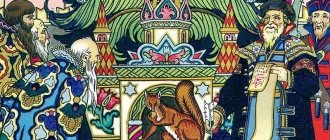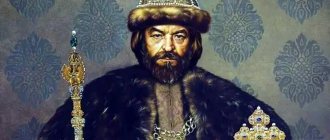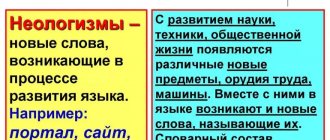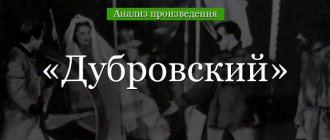From the biography
- Boris Godunov is a man with a strong character, strong-willed, and purposeful. He became an orphan with his sister early and achieved a lot in life. He quickly moved up the career ladder, as Tsar Ivan the Terrible favored him.
- Boris Godunov's sister Irina was the wife of Tsar Fyodor Ioannovich. Godunov was the de facto ruler of Russia from 1587-1598.
- Boris Godunov pursued a policy of increasing the authority of Russia and pursued successful economic and social policies. Therefore, many events carried out under Fyodor Ioannovich, and in fact Godunov, significantly increased his role in the country: in 1589 the patriarchate of Russia was established (the first Patriarch Job), he promoted many noblemen from the ranks, gave them salaries that were delayed, he eased the tax burden, abolished arrears altogether, introduced church privileges, and supported the merchants with benefits.
- Foreign policy under Fyodor was also successful - the war with Sweden (1590-1593) was over, and according to the peace treaty in 1595, Russia received Ivangorod, Corella, Koporye and Yam.
- However, after the death of Fedor and the election of Godunov as Tsar at the Zemsky Sobor, the attitude of all segments of the population towards him changed, since he did not belong to the Rurik dynasty. It was with his reign that the Troubles began; the people blamed Boris Godunov for all their troubles.
Gerasimov's method
Attempts to restore the appearance of people who lived earlier have been made since the middle of the 18th century, but all of them were unsuccessful. By the 30s of the 20th century, it was believed that the skull retains very little information, so it is impossible to reconstruct individual features of appearance from it. At best, one can define an anthropological type.
The legendary Soviet anthropologist Mikhail Mikhailovich Gerasimov clearly refuted this statement. Years of research into anthropological material helped him identify key features that allow him to recreate the face of a particular person. The scientist measured the thickness of the soft tissues, studied the attachment points of facial cartilage, ligaments and muscles, and dissected the eye and nasal areas. He outlined his research in 1955 in the monograph “Facial Reconstruction from the Skull.”
To overcome skeptical sentiments, Gerasimov repeatedly participated in forensic examinations. He accurately reconstructed the appearance of dead people from the skull and compared his version with lifetime photographs of the victims.
In the 40s, Gerasimov was invited for an anthropological reconstruction of the famous commander Tamerlane. Then, on Stalin’s personal instructions, the scientist restores the appearance of the famous admiral Fyodor Ushakov. In the 60s, he successfully worked on recreating the appearance of Ivan the Terrible and his son Fyodor. After the sudden death of Mikhail Gerasimov in 1970, his life’s work was continued by numerous students.
1.Domestic policy
| Activities | results |
| Strengthening the power of the tsar, strengthening the autocracy. | 1. Expelled many dissatisfied boyars from Moscow (Romanovs, Belskys and others)
|
| Economic strengthening of the country. | Unprecedented construction of cities, fortifications in the south of the country, church construction. Cities arose: Samara, Tsaritsyn (future Volgograd), Saratov, Voronezh, Belgorod. Colonization of Siberia and the Northern Volga region continued. |
| The fight against popular uprisings, the desire to calm the people. | 1. In 1597, even under Fyodor, a decree was adopted on scheduled flights - that is, on the search for peasants who had fled from the landowners. This caused the indignation of the people: 1602-1603 - the Khlopk uprising, suppressed by troops. 2. Temporarily restored St. George's Day in 1601, abolished by Grozny in 1581.
4. In 1603, he freed from feudal dependence the peasants expelled by the feudal lords during the famine.
|
| Fight against famine 1601-1603 | Bread prices have risen 100 times. The tsar tried to limit the rise in prices and persecute those who raised them, but in vain. They began to distribute bread from the royal barns, but there were many more starving people. |
| Further development of culture. | 1. Book printing is actively developing, new printing houses are being built. 2. He made plans to open a university and educate noble children abroad.
|
Strengthening the state and growing cities
Having concentrated all supreme power in his hands, he directed it towards the comprehensive strengthening of Russian statehood. As a result of his works, in 1589 the Russian Orthodox Church found its patriarch and became autocephalous, which increased the prestige of Russia and strengthened its influence in the world. At the same time, his domestic policy was distinguished by intelligence and prudence.
During the reign of Godunov, the construction of cities and fortifications began on an unprecedented scale throughout the country. The reign of Boris Godunov became the heyday of Russian church and secular architecture. The most talented architects enjoyed full support. Many of them were invited from abroad.
It was on Godunov’s initiative that the cities of Samara, Tsaritsyn, Saratov, Belgorod, Tomsk and many others were founded. The foundation of the fortresses of Voronezh and Liven is also the fruit of his statesmanship.
To protect against possible aggression from Poland, a grandiose defensive structure was erected - the Smolensk fortress wall. And at the head of all these endeavors was Boris Godunov.
Godunov’s activities within the state
During this period, in Moscow, at the direction of Godunov, the first water supply system in Russia was built - an unheard of thing at that time. From the Moscow River, using specially made pumps, water flowed to the Konyushenny Yard. At the end of the 16th century, this was a real technical breakthrough. In addition, the reign of Boris Godunov was marked by another important initiative - the nine-kilometer walls of the White City were built.
Constructed of limestone and lined with brick, they were fortified with twenty-nine watchtowers. Somewhat later, another line of fortifications was built. It was located where the Garden Ring passes today.
As a result of such large-scale work on the construction of defensive structures, the army of the Tatar Khan Kazy-Girey, who approached Moscow in 1591, was forced to abandon attempts to storm the city and retreated. Subsequently, it was completely defeated by the Russian troops pursuing it.
Foreign policy of Boris Godunov
Briefly describing his achievements in the field of diplomacy, we should first of all mention the peace treaty he concluded with Sweden, which ended a war that lasted more than three years. Godunov took advantage of the difficult situation that had developed within Sweden, and as a result of a treaty favorable to Moscow, he managed to return all the lands lost as a result of the Livonian War. Thanks to his talent and ability to negotiate, Ivangorod, Yam, Koporye and a number of other cities again became part of Russia.
Death of the young prince
The heir to the throne during the life of Tsar Theodore was his younger brother Dmitry, the son of the seventh wife of Ivan the Terrible. In May 1591, an event occurred that largely overshadowed the historical image of Boris Godunov.
In Uglich, under very mysterious circumstances, the legal heir to the throne, the young Tsarevich Dmitry, died. Since his death opened the way for Godunov to reign, general rumor hastened to accuse him of organizing the murder. Nevertheless, Godunov’s participation in the conspiracy to kill the prince has not been proven.
Foreign policy
| Activities | results |
| The fight against False Dmitry, who invaded Russia in 1604. | January 1605 - defeat of the troops of False Dmitry 1 near Dobrynichi, flight of False Dmitry to Putivl. |
| Russia's rapprochement with the West. | 1.1600 - truce with the Polish-Lithuanian Commonwealth for 20 years. 2. The Tsar invited foreigners to work, exempted them from taxes. 3. Wanted to invite scientists from France, Germany, England, Spain to organize a school in Moscow for teaching languages. But the church was against it. |
| Southern direction: protection of Rus' from the attacks of the Crimean Khan. | 1598 - campaigns against the Crimean Khanate, peace agreement with Khan Kazy-Girey. |
Boris Godunov is informed of his election to the throne.
RESULTS OF ACTIVITY
- Strengthened the role of the nobility.
- Contributed to the development of foreign and domestic trade.
- He was unable to strengthen his power, since the people considered his presence on the throne illegal.
- Measures to strengthen the country's economy could not prevent the economic crisis, and measures to combat hunger were not sufficient.
- Unable to calm the people, serious mass protests began in the country.
- Contributed to the further development of culture and improvement of people's lives
(the first water supply system was built).
- Foreign policy was more successful: he managed to temporarily defeat the troops of False Dmitry 1, ensured the security of the country in the south, preventing the threat of raids by the Crimean Khan, signed a truce with the Polish-Lithuanian Commonwealth, and continued rapprochement with the West.
Boyar opposition
But the new sovereign was not destined to rule Russia calmly and serenely. In 1601, a famine began in the country, caused by the loss of crops due to severe weather conditions. It lasted three years and claimed many lives. Boris's opponents took advantage of this. They in every possible way contributed to the spread of rumors among the people that the disasters that befell the country were God's punishment for the murderer king for the death of the legitimate heir to the throne.
Mass hunger and dissatisfaction with the establishment of "lesson years" became the cause of a major uprising led by Cotton (1602-1603). In September 1603, in a fierce battle near Moscow, the rebel army of Khlopok was defeated. Khlopok himself was seriously wounded, captured and executed.
New rumors spread throughout the country that the “born sovereign,” Tsarevich Dmitry, was alive. Detractors spoke unflatteringly about Godunov - “a worker.”
The situation was aggravated by the fact that Godunov, suspicious and inclined to see treason everywhere, having ascended the throne, brought many boyar families into disgrace. They became his main enemies. When the first news appeared about the approaching False Dmitry, posing as a prince who had escaped death, Godunov’s position became critical.
Chronology of the life and work of Boris Godunov
| February 1598 | Boris Godunov was elected tsar at the Zemsky Sobor (after the death of Tsar Fedor, his wife Irina went to a monastery). |
| 1598 | Campaigns against the Crimean Khanate, signing a peace treaty with Khan Kazy-Girey. |
| 1600 | A 20-year truce was signed with the Polish-Lithuanian Commonwealth. |
| 1601-1603 | Lean years, the fight against hunger. |
| 1601 | He restored St. George's Day, which was banned by Ivan the Terrible by introducing reserved years in 1581. |
| 1603 | He freed from feudal dependence those slaves who were kicked out by landowners during the famine. |
| 1603-1604 | The uprising led by Cotton Crookshanks was crushed by the Tsar's troops. |
| 1604-1605 | Preventing the threat of seizure of power by False Dmitry 1. The defeat of his troops near Dobrynichi in 1604. |
| April 13, 1605 | Death of Boris Godunov. |
| June 1605 | The overthrow of Godunov's son Fyodor from the throne. The murder of him and his mother. |
Fyodor Chaliapin as Boris Godunov.
How do historians assess the personality of Boris Godunov?
In pre-revolutionary Russia, the image of this figure was mainly negative. Suffice it to recall the drama “Boris Godunov”, written by Alexander Pushkin. Historians of that time also did not favor Boris; for example, Tatishchev called him a “holy killer” and a “slave king.” But there were also those who found positive features in his activities, for example, M. Pogodin.
Soviet historiography largely vindicated Boris Godunov, focusing on his government activities. In modern historiography, there is a widespread view that after being elected tsar, Godunov could well have become a successful ruler, if not for a number of unforeseen circumstances. So, if not for the terrible famine, the results of Boris’s reign could well have been different.
It is as difficult to give an unambiguous assessment to the historical portrait of Boris Godunov as to any other prominent character of the Time of Troubles. That is why the series of historians exploring various aspects of his biography does not stop.
https://www.youtube.com/watch?v=uK6ZeXi7T40






